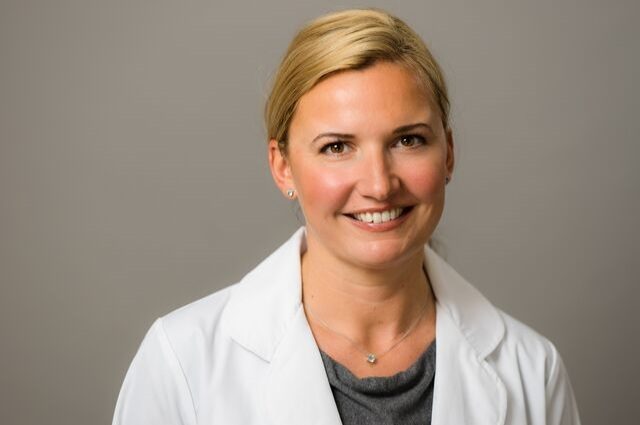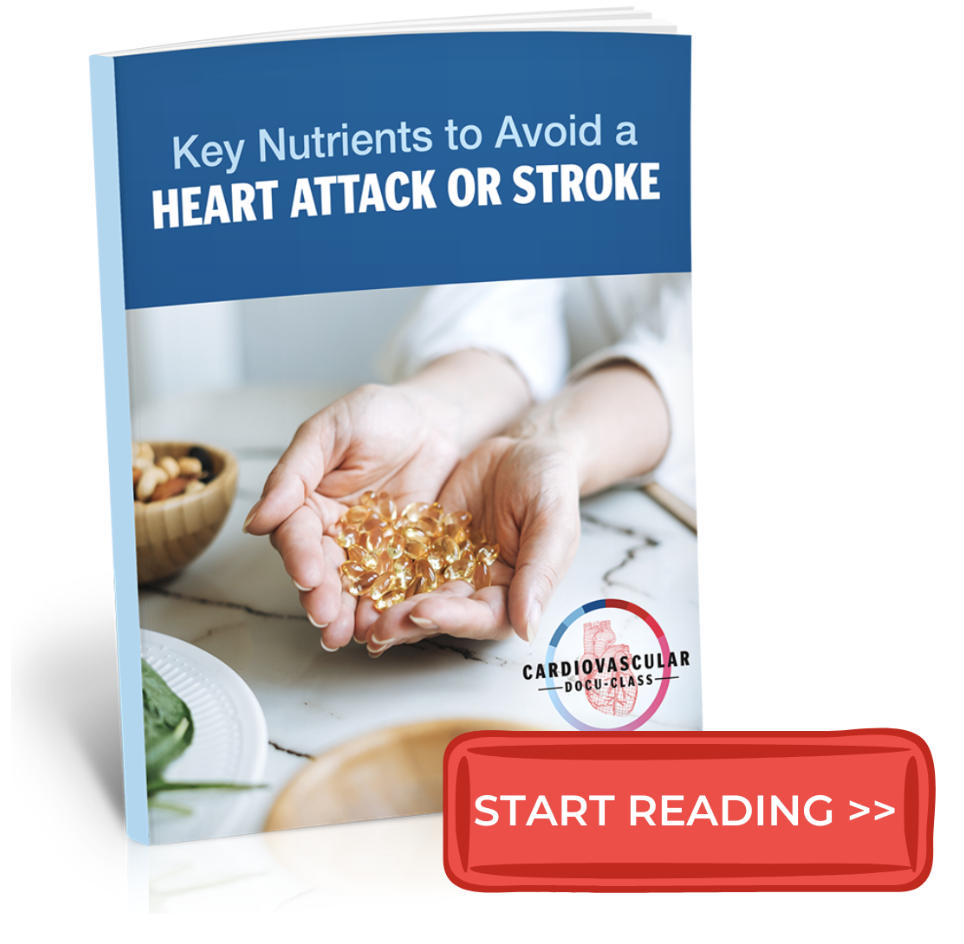Listen
Listen to this podcast or watch the video. CLICK HERE
Transcript
Top Takeaways
- One of the biggest groups of toxins that are bad for sperm quality is endocrine disrupters.
- Prenatal exposure to these toxins is worse for male fetuses than for female fetuses.
- Some of these toxins include chlorinated organophosphates found in flame-retardants, pesticides, plasticizers, and in house dust. Phthalates found in enteric coating of medications, lubricants, personal care products, medical devices, toys, and sex toys. BPAs found in plastics, and plastic water bottles. Heavy metals found in pesticides, car exhaust, and tap water.
- PCBs and POPs are persistent organic pollutants, which stay in the environment for long periods of time and can infiltrate our foods sources and water. When found in male serum, they have been associated with a 30% reduction in fertility and decrease in testosterone.
- Prescription medications that contain phthalates and polymers and can increase the risk of poor sperm quality by up to 71%.
- Air pollution and electromagnetic radiation like EMF can reduce motility count, morphology, and damage DNA.
- One of the biggest meta-analyses conducted in 2017 that included 185 studies published in the journal of human reproduction, found that sperm counts have declined by more than 50% between 1973 and 2013.
- The sperm samples from men in North America, Europe, Australia, and New Zealand had sperm concentrations below 40 million per milliliter, which is a level at which world health organization will consider men infertile.
- Reproductive toxins can damage the germ lines, the cells from which eggs cells and sperm cells develop. When there is damage in those cells it can be passed down through generations.
- These toxins can also cause miscarriages by damaging the DNA in the cells and causing an embryo to have an odd number of chromosomes.
- Free radicals are the biggest cause of DNA damage in sperm, which is why it is important to take antioxidants like vitamin C, E, selenium, zinc, CoQ1010, and glutathione.
- You must optimize the quality of the egg cells and sperm cells before going for IVF, or there is a much smaller success rate.
- If you do a preconception care program first, allowing the male and female body to have time to produce healthy reproductive cells, you can double the chances of success with IVF.
- It is advised that men should reduce their exposure to cell phones by keeping them away from the body, turning off wifi when it is not needed, and not placing electronics like laptops on their laps in order to prevent sperm damage.
- It takes 3 months for men to produce sperm from scratch, and 4 months for woman to produce new primordial cells.
- The core preconception preparation steps are to install a water filter in the kitchen and shower, place an air filter in house, limit caffeine and alcohol, stop smoking or vaping for the 120 days, check prescription drugs to see if they contain substances that can damage sperm, switch to organic foods, use eco friendly paints and buy eco friendly furniture if doing a home renovation, use natural care products, limit cells phone and wifi exposure, don’t use saunas or hot baths, don’t cycle long periods of time, check methylating genes, check for heavy metal toxicity, get a sperm analysis with DNA fragmentation, and look for help from a holistic or integrative medicine practitioner who understands fertility.
- Iva created an online program to help men and woman restore their fertility naturally by teaching them all these steps and more.
- She also does a careful analysis of your overall health and fertility with a questionnaire that has over 150 questions to give you an idea of what needs to be addressed, which she also uses to tailor a protocol and prescription to your individual needs.
- You can get an idea of how all of this works in their free report she is sharing with our viewers called How To Improve Sperm Health: 23 Simple Evidence-Based Tips at myersdetox.com/sperm
- In there, you will find out 23 natural tips to help improve sperm health factors, especially count, motility and morphology. The report also includes three costly misconceptions about sperm health and IVF, how to avoid three every day sperm-damaging toxins, a little known test that helps resolve many sperm problems, number one beverage for optimal sperm quality, and it’s not water, why you must avoid one protein because it promotes sperm antibodies, the three top nutrients for healthy sperm count activity and biological resiliency or morphology, and three pharmaceutical drugs that can damage sperm and lower sperm counts, and lastly, number one enemy to healthy sperm, and 99% of men do this and how to correct it.
- Go to Myersdetox.com/sperm
Wendy Myers: Hello, my name is Wendy Myers of MyersDetox.com. Thanks so much for joining us today for the Myers Detox Podcast, where we talk about all kinds of topics related to detoxification and how heavy metals and toxins affect every different organ system of the body. Today, we’re talking about sperm health. We’re talking about what toxins and chemicals affect sperm health, how that affects fertility, and what toxins cause miscarriages and why IVF treatments fail, and what you can do to dramatically increase the success of IVF treatments, so it all comes down to avoiding toxin ingestion and remove toxins that are in your body, but we have some really interesting tips on this show today. I have Dr. Iva Keene who has a fertility course, a fertility coaching course and tons of amazing information on her website, and she talked to us today about what you need to do before IVF treatments, why IVF treatments fail, top tips to improve sperm health.
We even have a free e-guide for you guys, a free report on all her different tips summarized to improve sperm health. Also, we discussed some really shocking, sobering statistics why up to 50% of males, especially in first-world countries like the U.S., and Canada, Europe and New Zealand are considered infertile and why, like up to 50% of males based on their sperm counts are considered infertile. I wanted to do this show because we have such a growing concern about people’s ability to conceive for … This is about the survival of the human race, and it’s estimated that up to 25% of couples have trouble conceiving, and part of the reason is the toxins in our environment, pesticides, heavy metals, industrial chemicals, air pollution and other things that are affecting our ability to produce hormone, toxins that enhance the sex-binding globulin that binds onto hormones, so then rendering them ineffective toxins that affect conversion of one type of hormone to another hormone, or increases or decreases certain hormones, so we have hormonal imbalance. This not only has implications for conception, but also sleep, mood, immunity, and just so many other things, so this is a really important show, and we’re going to be talking also about toxins that cause miscarriage as well.
A lot of women get pregnant, but then have recurrent miscarriages, so we’ll throw some light on that and what people can do to improve their chances of conception. I know a lot of you guys listening to the show are concerned about heavy metal toxicity and toxins, and are looking to take some action, do something about it, so I created a quiz. It’s at heavymetalsquiz.com, where you guys can answer some questions about some lifestyle habits and get a report on your relative levels of toxins in your body, and then the next steps to take. Following the quiz, you get a free video series that tell you what to do next, so now that you kind of have an idea of your toxin load in your body, “What do you need to do about it? What’s the first step? How do you get started?”, because that’s the biggest kind of question for so many people.
It’s like, “Where do I start?” There’s so any options. There’s so many things that I talk about in the Myers Detox Podcast for things that you can do, but people just need to know where to begin, so check that out. Go to heavymetalsquiz.com. Pick the two-minute quiz, and then watch the video series that follows. Our guest today, Dr. Iva Keene, she is a naturopathic doctor, and she’s a Swiss-based, Australian-trained naturopath, internationally recognized natural fertility expert, and creator of the award-winning NFP Program and the NFP 16-Week Fertility Coaching Program.
She’s the co-founder of natural-fertility-prescription.com, and the author of over 100 published articles on treating infertility naturally. You can learn more about her at natural-fertility-prescription.com, and you can also download her totally free report on how to improve sperm health at MyersDetox.com/sperm. Iva, thank you so much for coming on the show.
Wendy Myers: Thank you so much for having me.
Wendy Myers: You are a medical doctor, which focuses on fertility, and we’re going to be talking about toxins that affect sperm health, but why don’t you just tell us first a little bit about how you got into what you’re doing?
Wendy Myers: I’m a naturopathic physician, and I specialize in reproductive medicine and fertility. Well, long time ago, when I first started seeing patients, I noticed that more and more people was struggling to get pregnant and women were also developing PCOS, endometriosis, so it was becoming really common and I realized that I didn’t really know much about this and how to treat it, so I decided to specialize in the area because it really fascinated me. Here I am many years later doing the work that we do. We offer an online fertility coaching program that has been around since over 10 years, and we offer assistance to men and women and couples who are looking for natural solutions to getting pregnant.
Wendy Myers: Yes, and so I think this is so important because infertility is a rising problem. We have higher rates of people having trouble conceiving, having trouble carrying a baby to term, a lot of women presenting with reproductive issues like endometriosis, PCOS, and toxins are playing a huge role in this.
Wendy Myers: Yeah.
Wendy Myers: Can you talk about that?
Wendy Myers: Absolutely. Yes, there are many toxins that can impact the sperm health, and we find a lot of these in our environments. One of the biggest groups of toxins that are really bad for the sperm quality are endocrine disruptors. These are substances that have the ability to disrupt hormonal balance and the endocrine system. Studies have shown that prenatal exposure is worse for the male fetuses than for female fetuses, so now we are talking about mother’s exposure while she was pregnant and the impact this exposure has on the offspring.
Some of these are TDCPP, so these are chlorinated organophosphates, which are found in flame retardants, pesticides, plasticizers, and also they can be found in house dust, and this has been shown to impact hormonal balance and can also lead to poor sperm quality in men. Then, we’ve got phthalates. Phthalates are found in enteric coating of the medication, in lubricants, personal care products, medical devices, toys, and even sex toys. They have been shown to decrease steroid hormone activity and can impact sperm quality and quantity, and also can impact the libido. Then, we’ve got the BPAs, which are found in plastic and plastic water bottles, and they can impact the FSH and LH, and predispose to increase in prolactin and estrogen and sex hormone-binding globulin, which is really bad news for men because it binds to available testosterone, so if men don’t have enough available testosterone, they can’t make good quality sperm. Then, we also have heavy metals, which are found in pesticides, car exhaust fumes.
Tap water is polluted with toxic metals, and there are things like lead and cadmium, which have been shown to lower zinc concentrations in the sperm, and this can interfere with production of the sperm, and can also impact the shape of the sperm or the sperm morphology. Then, you also have PCBs and POPs, which are persistent organic pollutants. The problem with these things is that they are staying in our environment for very long time. They can take up to century or longer to break down, which means that they can infiltrate our food sources and chains, and we get exposed to them through our water and through the food that we eat. The PCBs and POPs, when they’re found in male serum, have been associated with 30% reduction in fertility and decrease in testosterone.
Then, you also have the prescription medications, which contain phthalates and polymers. Phthalates are there to provide the entering coating, and the polymers are there to, for controlled release, so you have some medication that releases over a period of time, and the risk of these two substances in the prescription medication can increase the risk of poor sperm quality up to 71%, so that’s a huge drop. Then, you’ve got the air pollution, which has also been shown to decrease motility count and morphology, and damage to DNA, and lastly, radiation. Electromagnetic radiation has been shown to cause damage to the DNA strands and can cause them to break. Also, electromagnetic frequency from cellphones can interfere with production of the sperm and can cause poor morphology, motility and count, and use of mobile phones for four hours a day has been shown to reduce sperm production by 25%. Now, not many people are aware of one of the biggest meta-analyses that was conducted in 2017 that included 185 studies.
It was published in the journal of Human Reproduction and it was the largest of this kind. It showed that sperm counts around the world have declined by more than 50% to 47 million sperm per milliliter between 1973 and 2013, and these sperm counts continue to dwindle. Now, the most significant declines were seen in the samples from men in North America, Europe, Australia, and New Zealand, where many had sperm concentrations below 40 million per milliliter, which is a level at which World Health Organization will consider men infertile. That means that half of the men in most developed patients are near or at the point of being infertile, and I think this is really alarming.
Wendy Myers: Yeah. I mean, it’s just shocking when you’re talking. I mean, I’m highly aware of toxins and how they affect so many different organ systems, including our reproductive organs, but it is scary. I mean, if this … People really need to get a wake up call here with the fact that if you’re not doing something about toxins in your body, you may have reproductive issues.
You may have trouble having children that we’re finding so many people … I mean, I just have like two people that work for me just in my MyersDetox.com that are doing IVF treatments that are trying to get pregnant and can’t, and this affects, I’m sure so many people that the listeners, people listening this is affecting people that you know.
Wendy Myers: Yup.
Wendy Myers: Like so many couples are having trouble conceiving because of how toxins affect the sperm and how toxins affect the … We haven’t even gone to the egg or our hormones so much yet.
Wendy Myers: Yeah.
Wendy Myers: It’s also when we have these toxins affecting sex-binding globulin then that reduces the amount of … Even if you’re making hormones, it produces their effectiveness, and then people have less desire to have sex and to conceive also, so it has a dramatic impact on our relationships.
Wendy Myers: Absolutely. Absolutely. It’s a big problem. It affects one person in six, so it’s a growing problem, and as we can see from this meta-analysis, it’s something that is continuing, and there’s no stopping it unless we do something about it, and we can, and that’s the good news here.
Wendy Myers: Yeah, and we’re going to get to some solutions in a minute, but let’s illustrate the picture even further.
Wendy Myers: Yeah. Sure.
Wendy Myers: How do these toxins exactly impact the DNA of the sperm?
Wendy Myers: Great question. From the epigenetic studies, we know that these reproductive toxins can damage the so-called germ lines, and these are the cells from which egg cells and sperm cells develop. If you have a damage in those cells, that damage can be passed down through the generations, so it can impact your children, your children’s children, and their children, and so on, so we are talking about some serious damage to these very crucial cells. From the epigenetic studies, we know that it’s our environment that influences our genetic expression more so than something from within, so it’s important that you control your environment as much as you can, and there’s a lot that you can do as we’ll see shortly.
Wendy Myers: Let’s talk about miscarriage. Why is the risk of miscarriage higher with poor DNA integrity, and what are some toxins contributing to miscarriage also?
Wendy Myers: All right. 50% of the chromosomes will come from the mother and 50% from the father. If there is a damage in the DNA of the cells of the embryo, the embryo can end up with an abnormal number of chromosomes. We can have an extra chromosome or some chromosomes could be missing. Also, if you have a damage in any of these chromosomes, it’s very difficult to build a healthy body, which can then lead to a miscarriage.
The toxins that can predispose to miscarriage, apart from the ones we looked at already, the endocrine disruptors that are found in personal care products, cosmetics, can also be found in a lot of the foods, so pesticides, caffeine, alcohol. These have also been shown to predispose to miscarriages, and so you need to be really careful. Also, the insecticides, anything that’s capable of killing an insect can also cause severe damage through the developing embryo, which is smaller than a lot of the insects out there, and so you really need to be mindful about that too.
Wendy Myers: Yes, and cadmium plays a big role also in causing DNA mutations, and which also contributes to cancer, but this also contributes to miscarriage, so anyone who’s smoking, and even marijuana also, medicinal marijuana, they’re getting a tremendous amount of cadmium with that habit, and this can lead to miscarriages also.
Wendy Myers: Cadmium, yes and mercury as well unfortunately. One of the biggest sources of mercury is seafood and fish, and that’s why a lot of pregnant women are cautioned against eating seafood or fish, even … The studies are just getting more and more scarier, so we really caution people about the heavy metals, but we also recommend checking your heavy metals first during the preconception care period just to see where you’re starting. It’s not ideal to detox from heavy metals right before conception because you still need a bit of time to produce new egg cells and sperm cells or to mature new egg cells and sperm cells before your body is then ready for conception, but there are ways we can minimize the damage to the reproductive cells through certain supplements if you do have elevated metals in your system.
Wendy Myers: You’re talking about earlier about DNA fragmentation, toxins having the ability to break strands of DNA. Is there any sort of test for DNA fragmentation?
Wendy Myers: There is. Men should ask for a sperm analysis with SCSA or so-called Sperm chromatin structure assay, which is considered to be the gold standard to measure the DNA fragmentation. It’s looking for the DNA fragmentation index, and if it’s less than 15%, the DNA is a very good integrity. If it’s more than 29%, it’s been associated with miscarriages and infertility. What they have found out is that it’s the Reactive oxygen species, the free radicals, which are most, the biggest cause behind the DNA damage, and this is where antioxidants play a really important role, so things like vitamin C, vitamin E, selenium, zinc, CoQ10 and glutathione have all been shown to improve the DNA integrity of the sperm.
Wendy Myers: Let’s talk about in vitro fertilization. A lot of couples having trouble conceiving go to their medical doctor or a fertility clinic, and automatically start in vitro fertilization treatments. What is that missing? Like what are they missing in the whole framework around doing in vitro fertilization?
Wendy Myers: Great question. When you go straight for IVF or any type of ART, which is Assisted Reproductive Technology, you are not really optimizing the quality of the egg cells and the sperm cells. If you say a man has had rough couple of months, maybe he was sick, had to take antibiotics, he’s been out with the boys a few night, something to celebrate, had a lot of stress at work, worked late hours with a laptop on his lap, carried his cellphone around with him, didn’t have time to eat properly, didn’t take any supplements, now he’s going in for IVF. That sperm is not optimized. The good news for men is that they produce new batches of sperm every 72 to 76 days. Even through women are born with all of their eggs, these eggs are not the eggs that women ovulate, so they are so-called primordial cells, which undergo a maturation process that lasts four months or 120 days during which the egg cell will undergo two sets of meiosis or cellular division, where most chromosomal issues will happen if they happen, okay?
It’s in this four months prior to ovulation that you have the greatest impact on the quality of your egg cells, and for men, it’s that 72 to 76-day window, so if you’re going straight for IVF without optimizing the quality of the egg cells and sperm cells first, the chances of success are not very high, and studies have shown that if you do preconception care program first, you’re doubling the chances of success with IVF, and you may even find that you don’t need to use IVF in the end after that process.
Wendy Myers: Yeah. That’s amazing because I think there are so many people out there, desperate couples looking for answers, paying the $20,000 here in the U.S., the cost to get one in vitro fertilization treatment. That’s incredibly expensive, and I seriously doubt that they have like a program leading up to that treatment for a nutrition, and detoxification, and lifestyle changes to enhance the success of that. I don’t see that being a part of the picture at most clinics.
Wendy Myers: Yeah. Yeah. That’s true unfortunately.
Wendy Myers: Yeah, and so what can men do specifically to protect their sperm from DNA damage?
Wendy Myers: The first thing would be to switch to natural personal care products and cleaning products. This is something that men don’t really think about a lot. They just buy whatever they recognize in the supermarket or they let their partner buy for them. That’s really important because there, you’re going to minimize exposure to a lot of these chemicals. The next one and one of the really big issues that a lot of people are kind of neglecting is carrying your cellphone on your body, and for men, putting it in the pants’ pockets, right next to their testis, and walking around all day with their cellphone there is not a good idea, so you should really try to keep the cellphone away from your body.
If you’re going to carry it on your body, then you should put it in flight mode, okay? It’s something that’s easily forgotten, but people need to become really mindful of this. Switch your Wi-Fi off if possible at your work. I mean, if you can use cable or a [VLAN 00:23:35], that’s great. If not, there are certain products out there like the Belly Armor underwear that men can wear that can protect their testis from the radiation, but at night, when you’re at home, really try to switch Wi-Fi off and don’t put your laptop on your lap.
That’s really important because again, you have a close proximity to the testis. All these tips apply to women as well, but now, today, we are talking about the sperm and the damage to the DNA. Then, taking antioxidants is really important. We mentioned some already, vitamin C, vitamin E, selenium and zinc are really, really important for sperm quality, and unfortunately, both of these minerals are very depleted from the soil and from our food, and zinc is a highly competitive nutrient. It competes for absorption with just about every other nutrient apart from vitamin C.
If you’re going to take your zinc, take it at the end of the day, away from all the other supplements, and it likes vitamin C, so you can take them together. Then, CoQ10 and glutathione, which offers fantastic protection inside the cell, so look for liposomal form of glutathione, so it can cross into the cell, it can cross the membranes, and also Resveratrol and Pycnogenol are two very potent antioxidants that can protect the sperm, and men should also try to avoid pesticides and insecticides, so this is where your organic food comes into play and really be mindful about what you’re buying and what you’re drinking, especially when you eat out. I think that’s the most difficult part for a lot of people because in a restaurant, you just don’t know what you get served, and unless you know it’s an organic place, which I hope there’ll be more of in the future.
Wendy Myers: Yeah. I know it’s tough. I mean, you just can’t really eat out and expect to not get a meal full of pesticides and herbicides. It’s just … That’s the choice a lot of people make. They get delivery, and they don’t want to take the time to cook, and that’s reality for a lot of people, but you have to primarily eat at home and cook for yourself if you want to avoid pesticides and herbicides.
Wendy Myers: Yeah.
Wendy Myers: All these things you’re saying apply to men and women, and anyone looking to be healthy, and so let’s talk about how long it takes to repair DNA-damaged sperm. I know you mentioned 72 days or so to regenerate sperm. Are we looking to just regenerate new sperm with these new, healthy lifestyle habits, or can we actually repair DNA-damaged sperm?
Wendy Myers: That’s correct. You would need to make a new batch. The good news for men is they make new batches from scratch, and the issue with the sperm is that they pass through the area of the testis where … The toxin’s also going to be passed out of the system, so you’ve got the semen and you’ve got the sperm, sperm inside the semen, but in the semen, the body will be getting all sorts of toxins, okay? That’s one of the detox routes for the body of men.
If the man is smoking or if he’s drinking alcohol, he’s exposed to a lot of pesticides, this is where they’re going to be dumped, and this is where they’re going to exit the body. The sperm themselves need to spend certain amount of time in that part of the testis where they learn how to swim and mature, and if they’re exposed to these toxins during that critical time, they can become damaged, so yes. For the sperm that the man is currently ejaculating, there’s not much you can do. That sperm if it’s damaged is damaged. That’s why if you see a reproductive endocrinologist, they will tell you, “There’s nothing you can do to improve sperm quality,” and what they’re referring to is the current batch.
They can wash the sperm, they can look for the best-looking sperm injected into the egg cell. There’s lots … They can do that way, but they can’t really change the quality of that sperm, so the best chance a man has is to start again, so start from scratch and give himself the three months because it takes four months for the woman. Ideally, they should both be doing this together, so it’s four months for both, and just do the proper preconception care where you’re avoiding all these things and you’re adding in all the good antioxidants, making dietary lifestyle changes, and very importantly, also addressing any underlying systemic issues that may come up for you.
Wendy Myers: Yes. Yes. What are the core preconception preparation steps for a healthy sperm? Is there anything more you want to add to what you’ve mentioned already?
Wendy Myers: Oh, absolutely. I’ve got a lot to add if we have the time.
Wendy Myers: Step one to 20, yeah.
Wendy Myers: Yeah. Yeah. First thing, install a water filter in your kitchen and your shower. That’s really important. We forget that the skin is an organ too, and the skin is highly absorbent when you’re in the shower, and all the pores are open up.
Have also an air filter in your house, especially if you’re living in an urban area or in a big city, or if you’re living in a house that’s full of curtains, and carpets, and plasticized furniture, then a lot of these chemicals will be off-gassing. Limit caffeine and alcohol intake, or ideally stop for that period of 120 days, and stop smoking or vaping if that’s what you’re doing. Check all the prescription drugs you are on with the doctor who prescribed them to see if any of them contain any substances that could be damaging to your sperm, and then discuss with them what alternatives are there for you. Switch to organic food. Obviously, very important to minimize the exposure to pesticides. If you want to renovate your house or parts of your house, then don’t buy new furniture and carpets, which would contain plastic and flame retardants, or use paint that could be full of toxins.
Use for eco-friendly paints and eco-friendly furniture. There are companies out there. These things are usually more expensive, but your health and your fertility will thank you for this, and over the years, that extra expense is going to save you lots of medical bills.
Wendy Myers: Yeah. IVF is expensive too.
Wendy Myers: IVF is very expensive. Absolutely, and the older you are, the more expensive you get, and especially if you need to use donor eggs or donor sperm, it gets even more expensive, so you got to bear that in mind. As we mentioned, switch to natural personal care and cleaning products. Keep the cellphones away from the pockets and the body. Avoid saunas and hot baths, okay?
This is important for men. Now, the reason why testis are hanging outside of the body and they’re not tucked in like the ovaries, is because they need to be two to three degrees cooler than the rest of the body, so if the man is then wearing really tight-wearing pants and going into hot baths and saunas, or he’s riding his bike in those tight pants, he’s just increasing the scrotal temperature that can damage the sperm. Cycling is unfortunately also something that we don’t recommend for men who are trying to father a child, especially in awful long periods of time. If it’s just a quick ride to work, 10 minutes, 15 minutes down the road, that’s okay, but you’re not going to be doing classes at a gym or anything like that, or going for long rides on the weekend. It’s also important to check your methylating genes, such as MTHFR, MTR and MTRR, because these genes are responsible for methylation, which is part of the detoxification process.
If your detox mechanisms in the body are not working, then you can do all sorts of detoxes, but these toxins are going to keep getting stuck in your system, so you need to support that, and MTHFR is very common in the population. Around 40% of the population have this gene mutation, so if you do have it, you need to support it accordingly. Check for heavy metal toxicity. In this day and age, we are seeing heavy metal toxicity in kids as young as three years old, which is really scary, so it’s very important that you are aware of that too. Then, get the sperm analysis with a DNA fragmentation to see if there are any parameters that need addressing before conception, because that way, you can minimize the risk of a miscarriage.
Then, look for help from a holistic or an integrated medicine practitioner who also understands fertility and who will be able to assess your whole health and help you then to find a cause and address it. We created an online program to help men and women restore their fertility naturally. We teach them all these steps and a lot more, and we also do a very careful analysis of their overall health and fertility with a questionnaire, which has more than 150 questions. It takes a long time to fill that out, but it gives us a very good idea of what’s going on in your body and what we need to address. It’s not just your body, it’s also your mind, it’s your emotions, your belief system as well, which is very important here.
Then, we tailored a protocol and prescription to your individual needs. You can get a taste of how all of this works in a free report, which we are sharing with the viewers today. It’s called How To Improve Sperm Health: 23 Simple Evidence-Based Tips. In there, you will find out 23 natural tips to help improve sperm health factors, especially count, motility and morphology. The report also includes three costly misconceptions about sperm health and IVF, how to avoid three every day sperm-damaging toxins, a little known test that helps resolve many sperm problems, number one beverage for optimal sperm quality, and it’s not water, why you must avoid one protein because it promotes sperm antibodies, the three top nutrients for healthy sperm count activity and biological resiliency or morphology, and three pharmaceutical drugs that can damage sperm and lower sperm counts, and lastly, number one enemy to healthy sperm, and 99% of men do this and how to correct it.
Wendy Myers: Amazing. That just sounds chock-full of really interesting information. I’m sure a lot of these same lifestyle habits and tips apply to women’s reproductive health as well, a number of them for sure. If you guys want to download this, go to MyersDetox.com/sperm, so S-P-E-R-M, and download the totally free report chock-full of information so you could have a healthy reproductive health. Is there anything else that you want to mention to the listeners that maybe we haven’t covered yet?
Wendy Myers: I would like to mention that it’s really important for men to be part of this preconception journey, because fertility is often viewed as a women’s problem. It’s because women are the ones who get pregnant and they carry the baby and deliver and breastfeed and so on, so men kind of feel that they’re not really involved in this, but they are because they contribute 50% of the genetic material, and that’s huge. It’s 50% of your genes that are going to make up your son or your daughter, and will determine their health. When you get pregnant and when you deliver a baby, that’s just the start of the journey. Now, you have this beautiful, young baby that you’re responsible for for the next 18, 21 years, even longer, and you want them to be healthy, and you want them to be self-sufficient human beings who can thrive on their own. In this day and age, where we’re seeing so many cases of autism and so many behavioral issues in our children, it’s really important that we try to optimize our health before conception so that we can minimize the risk of this happening as much as possible.
Wendy Myers: Yes, and so I totally agree. I mean, I did a podcast on transgenerational toxicity that the bad health habits of your grandparents and your parents can affect your child’s health today because of the breakage of these DNA strands and mutant DNA that can affect sperm, and eggs, and whatnot.
Wendy Myers: Yeah.
Wendy Myers: How long do you think someone should start detoxing prior to thinking about conception and conceiving?
Wendy Myers: Look, ideally, you should give yourself a good year just in case we do discover heavy metal toxicities. If you have to do a chelation therapy that can take anywhere between three to six months, then you need to wait for the ne wbatch of eggs and sperm to form in a clean environment. You’d add another four months so it can set you back by a good year. Start looking into this early if you can. Sometimes it’s not appropriate to do such a big detox if a woman is 44 or 45.
She just doesn’t have the luxury of that one year of detoxing, but the longer, the better, and the more tests you can do at the start to find out what’s going on with your methylation, with toxicity levels, with food intolerances, the better it is because it gives you more time to fix all this and to better prepare for pregnancy.
Wendy Myers: Yes, and I find that I have a lot of clients that are cleaning up their body, they’re interested in detoxing, getting to the root cause of their symptoms, they’re not finding at their conventional medical doctor or even functional medical doctor and detoxing, and they find they become very, very fertile, because they don’t know all these metals and toxins that are mimicking estrogen or interfering in production or conversion of sex hormones.
Wendy Myers: Yeah.
Wendy Myers: I was actually just, spent all day of writing an article specifically about that yesterday, which will be published soon.
Wendy Myers: Okay.
Wendy Myers: Yeah, it’s like people don’t realize that their fertility is so dramatically impacted by toxins, and then once they start detoxing, they become much more fertile, so they have to be aware of that.
Wendy Myers: Yeah. Absolutely. I mean, that’s the amazing healing power of our bodies, and you just need to give the body the right environment, and the body will do the rest. That’s the good news. Even though we live in such a polluted world, there’s a lot we can do. I always teach my patients to choose natural, and organic, and clean, and eco-friendly products because they’re also supporting those industries, and they’re sending a message to the other producers of toxic products that no one’s going to buy this stuff anymore.
Wendy Myers: Yeah, you have to vote with your dollars.
Wendy Myers: Exactly.
Wendy Myers: Also, you want to be aware of detoxification, doing detoxification because once you’re pregnant and breastfeeding, you can’t do detoxing. You can’t engage in that, and that can be years and years and years, so it’s much better to focus on that for a couple of really good years and remove as many toxins as you can because if you have mercury fillings or you just haven’t had any awareness around living a healthy lifestyle, even if you are living a healthy lifestyle, you’re still accumulating a lot of toxins, and you pass the stuff onto your child through the placenta, tons of research Dr. Lindsey Berkson has done, wrote an amazing book, all the research showing how all these toxins transfer from mother to child, and so you really want to … If you had that lead time to plan, really do that pre-pregnancy planning and adding detoxification to it.
Wendy Myers: Oh, absolutely. I totally agree.
Wendy Myers: Everyone, if you want Dr. Iva Keene’s sperm guide, how to improve your sperm health, go to MyersDetox.com/sperm and download that totally free report. Dr. Keene, thank you so much for joining us on the show.
Wendy Myers: Thank you very much for having me. It was a real pleasure.
Wendy Myers: Everyone, thanks for tuning in every week and giving me the opportunity to educate you about really how toxins dramatically impact every different organ system and enzymes, and functions, and reproductive health in our bodies. Thanks for tuning in, and I’ll talk to you next week.















